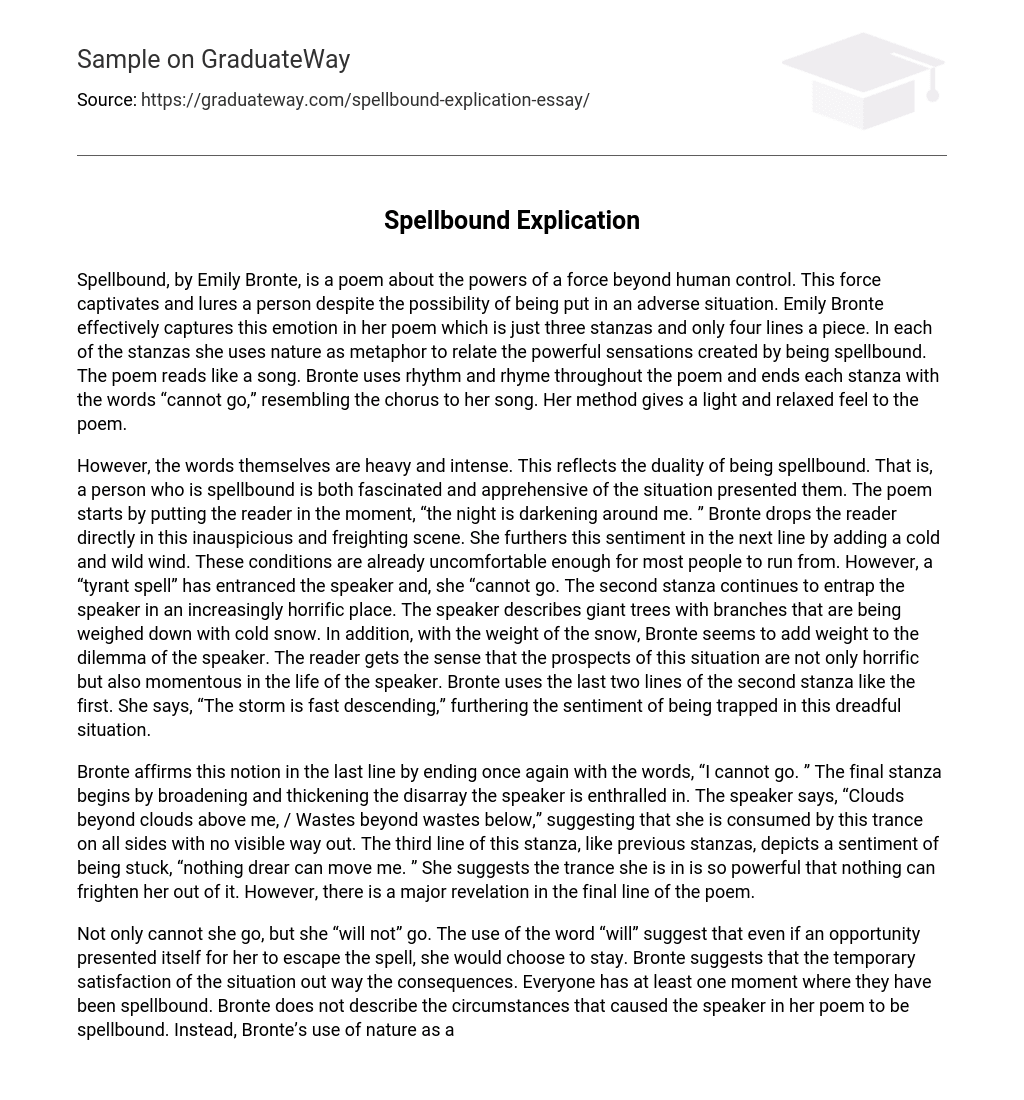Spellbound, by Emily Bronte, is a poem about the powers of a force beyond human control. This force captivates and lures a person despite the possibility of being put in an adverse situation. Emily Bronte effectively captures this emotion in her poem which is just three stanzas and only four lines a piece. In each of the stanzas she uses nature as metaphor to relate the powerful sensations created by being spellbound. The poem reads like a song. Bronte uses rhythm and rhyme throughout the poem and ends each stanza with the words “cannot go,” resembling the chorus to her song. Her method gives a light and relaxed feel to the poem.
However, the words themselves are heavy and intense. This reflects the duality of being spellbound. That is, a person who is spellbound is both fascinated and apprehensive of the situation presented them. The poem starts by putting the reader in the moment, “the night is darkening around me. ” Bronte drops the reader directly in this inauspicious and freighting scene. She furthers this sentiment in the next line by adding a cold and wild wind. These conditions are already uncomfortable enough for most people to run from. However, a “tyrant spell” has entranced the speaker and, she “cannot go. The second stanza continues to entrap the speaker in an increasingly horrific place. The speaker describes giant trees with branches that are being weighed down with cold snow. In addition, with the weight of the snow, Bronte seems to add weight to the dilemma of the speaker. The reader gets the sense that the prospects of this situation are not only horrific but also momentous in the life of the speaker. Bronte uses the last two lines of the second stanza like the first. She says, “The storm is fast descending,” furthering the sentiment of being trapped in this dreadful situation.
Bronte affirms this notion in the last line by ending once again with the words, “I cannot go. ” The final stanza begins by broadening and thickening the disarray the speaker is enthralled in. The speaker says, “Clouds beyond clouds above me, / Wastes beyond wastes below,” suggesting that she is consumed by this trance on all sides with no visible way out. The third line of this stanza, like previous stanzas, depicts a sentiment of being stuck, “nothing drear can move me. ” She suggests the trance she is in is so powerful that nothing can frighten her out of it. However, there is a major revelation in the final line of the poem.
Not only cannot she go, but she “will not” go. The use of the word “will” suggest that even if an opportunity presented itself for her to escape the spell, she would choose to stay. Bronte suggests that the temporary satisfaction of the situation out way the consequences. Everyone has at least one moment where they have been spellbound. Bronte does not describe the circumstances that caused the speaker in her poem to be spellbound. Instead, Bronte’s use of nature as a metaphor makes the poem adaptable to any such situation. Therefore, anyone reading her poem can immediately relate to the emotions of being spellbound.





